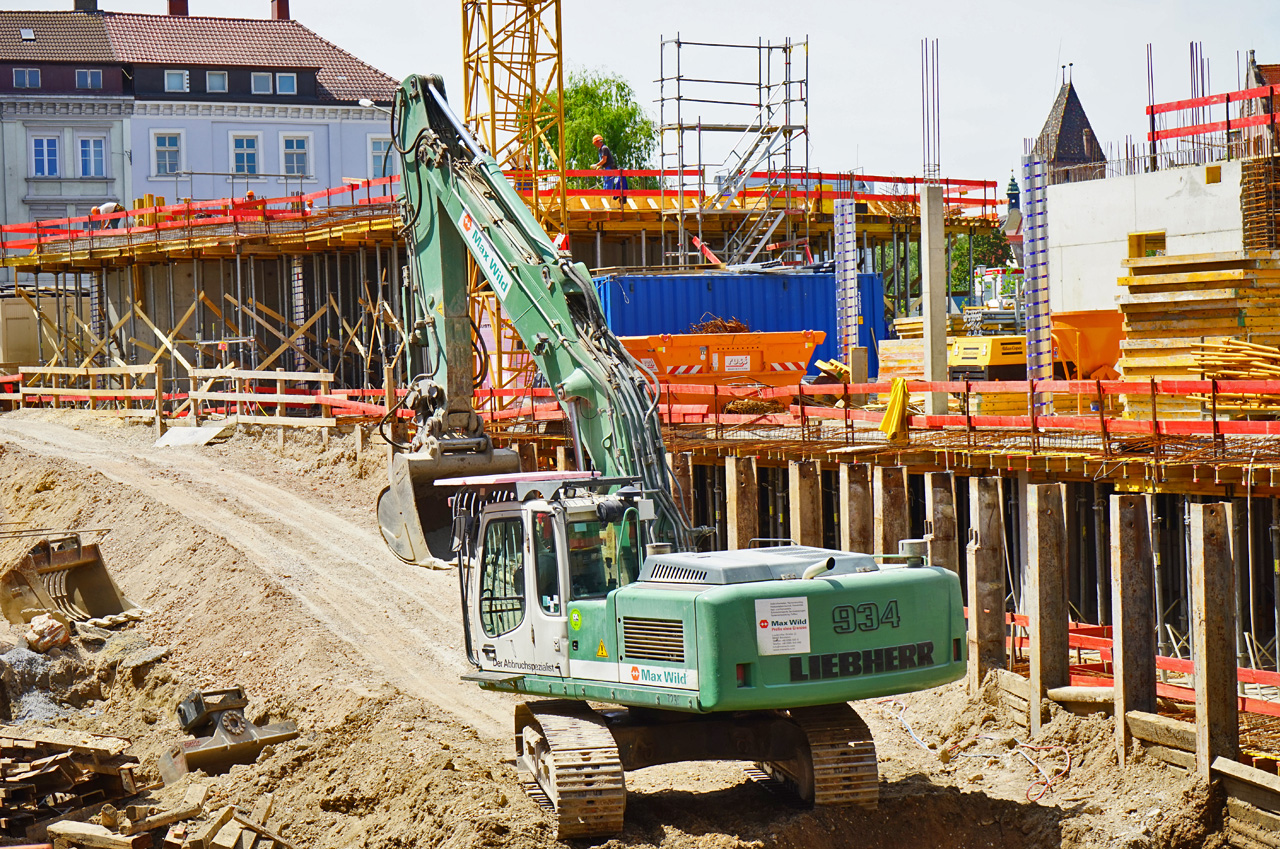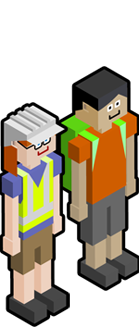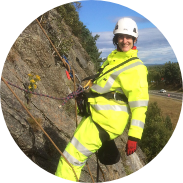

Engineering
Geologist

Jessica
Job title: Senior Engineering Geologist
What does an Engineering Geologist do?
An Engineering Geologist uses their knowledge of the ground (soil, rock, groundwater and surface processes), and how it behaves, in order to identify and manage potential ground-related impacts on civil engineering projects such as roads, buildings, bridges and tunnels. Human impact on the ground is also considered by Engineering Geologists, for example old mines or slope instabilities triggered by inadequate drainage.
An Engineering Geologist typically balances their time between being in the field and in the office. Time spent in the office is used to develop ground models using resources like geological maps. These models are then tested through field investigations such as mapping and logging soil or rock from boreholes. All of this information is drawn together through analyses and reporting to provide an engineering solution that is suitable for the ground.
What qualifications and previous work experience did you need to get your job?
I initially completed a Bachelor of Science with Honours (BSc Hons) undergraduate degree in Earth Science. I studied in Scotland so this took four years but can be completed in three years in the rest of the UK. I the gained two years of industry experience before completing a year long postgraduate Master of Science (MSc) degree in Engineering Geology. I call my MSc a “conversion course” as it taught me to communicate the right things effectively to Engineers and allowed me to gain a better understanding of engineering practice.
What other skills or characteristics do you need in your job?
Strong communication skills are essential – in a typical day I communicate with colleagues, clients, and suppliers in a variety of ways including by email, in written documents such as reports, by phone, and in meetings where I am presenting project work. I work on projects that require input from a range of disciplines so it is also very important to be able to collaborate and be a good team player. Although it is not essential, an adventurous spirit can help – I have worked in different countries, hanging off of cliffs on ropes, and in confined spaces such as caves!
What sort of organisation do you work for? Where else could you work as an Engineering Geologist?
I work for a large multi-disciplinary engineering consultancy called Atkins. We employ a diverse range of people who all contribute to engineering projects including Landscape Architects, Project Managers, Structural Engineers, and Acousticians to name a few. Engineering Geologists can be at the frontline of field work by working for Geotechnical Contractors and can also take on more strategic roles in Client organisations such as Network Rail. As with many technical specialists, Engineering Geologists can develop into a range of management and business leadership roles too.
What do you enjoy about your job?
I enjoy contributing to projects that make a positive difference to people’s lives. I also really enjoy working alongside different specialists and finding out more about their jobs.
What opportunities do you have to develop your skills in your job?
In my day to day work one of the best ways to develop my skills is by speaking to and working alongside my colleagues on projects. Traditionally the perception is that we learn from our more experienced colleagues – this is obviously true; however, I increasingly learn about new ways to do things from those who are junior to me.
What advice or extra information do you wish you’d had before starting this career?
I now try to encourage students to gain geoscience work experience while at university to complement their academic studies because I think it would have been beneficial to do this myself.
That said, the most important piece of advice is – do something that you enjoy!